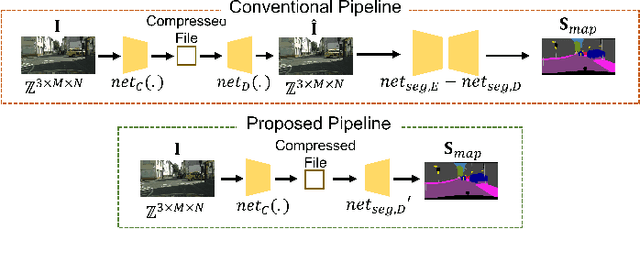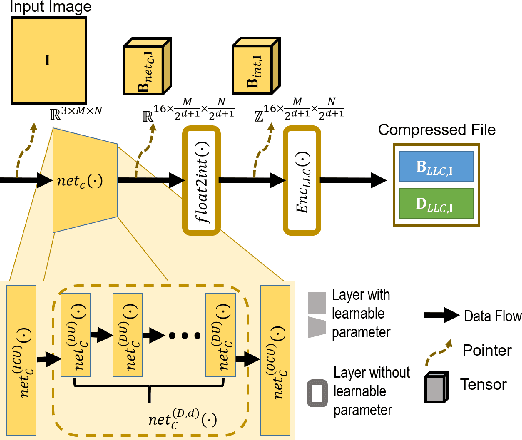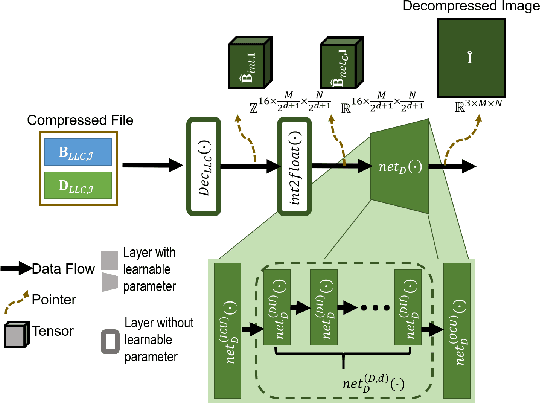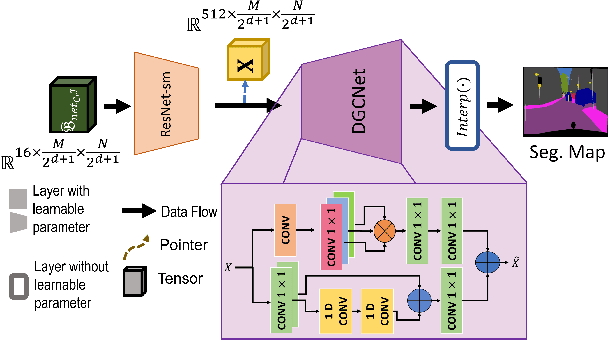Exploiting Richness of Learned Compressed Representation of Images for Semantic Segmentation
Paper and Code
Jul 04, 2023



Autonomous vehicles and Advanced Driving Assistance Systems (ADAS) have the potential to radically change the way we travel. Many such vehicles currently rely on segmentation and object detection algorithms to detect and track objects around its surrounding. The data collected from the vehicles are often sent to cloud servers to facilitate continual/life-long learning of these algorithms. Considering the bandwidth constraints, the data is compressed before sending it to servers, where it is typically decompressed for training and analysis. In this work, we propose the use of a learning-based compression Codec to reduce the overhead in latency incurred for the decompression operation in the standard pipeline. We demonstrate that the learned compressed representation can also be used to perform tasks like semantic segmentation in addition to decompression to obtain the images. We experimentally validate the proposed pipeline on the Cityscapes dataset, where we achieve a compression factor up to $66 \times$ while preserving the information required to perform segmentation with a dice coefficient of $0.84$ as compared to $0.88$ achieved using decompressed images while reducing the overall compute by $11\%$.
 Add to Chrome
Add to Chrome Add to Firefox
Add to Firefox Add to Edge
Add to Edge